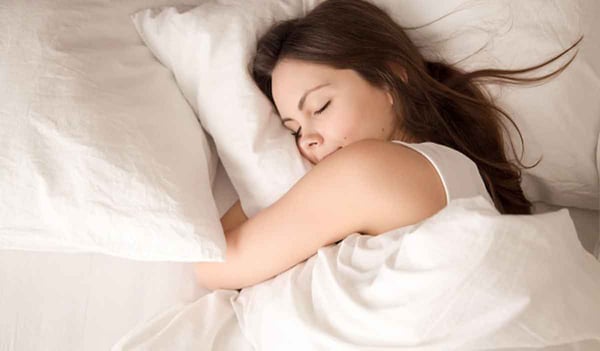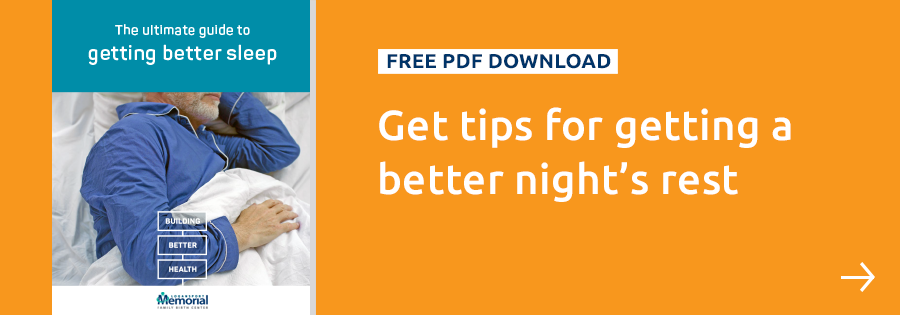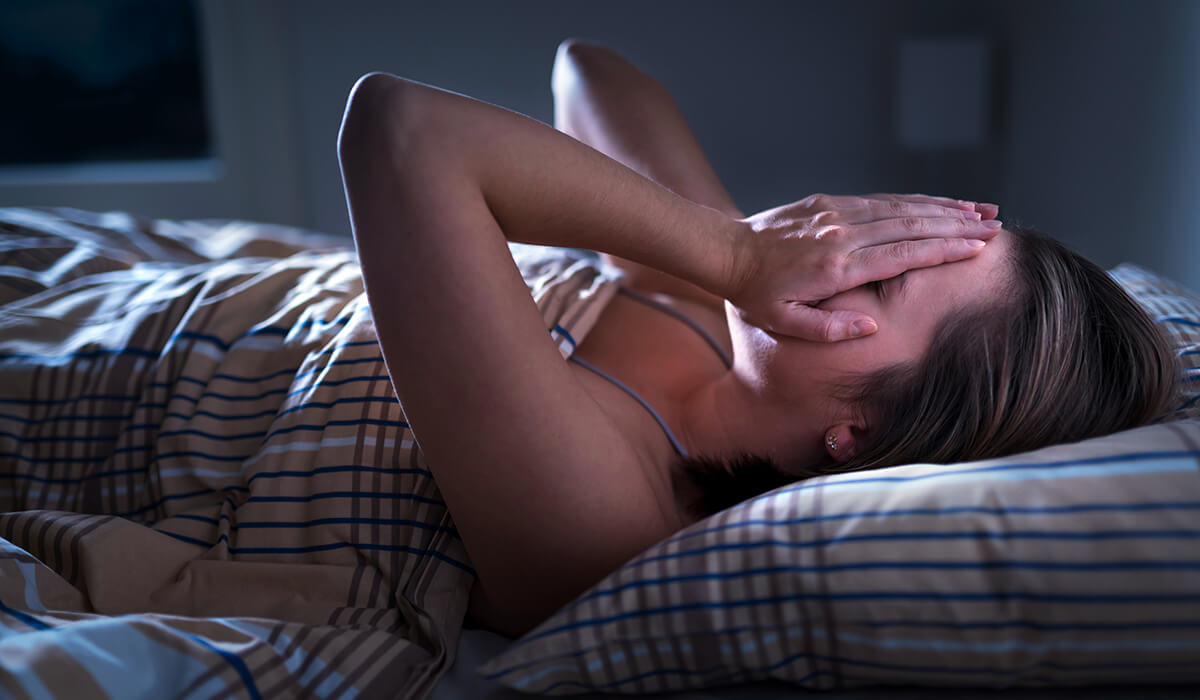More than 40% of the population suffers from some type of sleep disorder. Poor sleep patterns over a long period of time can affect you both physically and emotionally. Lack of sleep may eventually contribute to heart problems, diabetes, stress, and other health conditions. It's time to stop counting sheep and learn how to get a good night's rest.

While it is common for your sleep patterns to change throughout your life, getting fewer hours is not one of those changes. As you age, getting to sleep can be the hardest part of your nighttime routine. If you are struggling to fall asleep, it's time for you to take a look at your sleep routine habits. Making small adjustments in the evening can set you up for a successful night of sleep.
Tips for better sleep
Follow these tips to help you fall asleep faster, and stay asleep longer:
- Skip your day time nap. If you have free time throughout the day and you fill that free time with an afternoon nap, it's time to change your routine. Napping during the day, as an adult, can mess with your sleep cycle and make it difficult for your body to wind down in the evening. However, if you feel like a nap is necessary to make it through your day, limiting it to 15 minutes is a great compromise.
- Be mindful of caffeine. It's easy to lose track of the amount of caffeine you are consuming throughout the day. You may start with coffee in the morning, then have a soda with lunch, and maybe you want an afternoon tea... Before you know it, you have consumed closed to 300 mg of caffeine. Limiting the amount of caffeine you consume during the day can help you wind down at night. As an added bonus, the less caffeine you drink, the more you will enjoy that one cup of coffee.
- Be active during the day. Being active is not only healthy for your body, but your mind too. Using energy throughout the day means you will have less built up energy at night when you are trying to fall asleep. A simple 30 minute walk could mean falling asleep that much faster at night.
- Try relaxation methods. This is one step further than just "relaxing". You might feel as if your current routine leaves you feeling relaxed, but still has you struggling to fall asleep. Try adding a calming lotion to your routine. Take a warm bath before bed. Listen to soft music. Adding these simple but effective measures can help you get the sleep you need.
- Manage what's on your mind. It can be easy to slip into a sea of worries when you lay down at night. Staring at the ceiling can allow your mind to wander, and soon you will be thinking of stressors and worries. Make it a rule to resolve or set aside your worries before bed. When you get into your room, your mindset should be focused on winding down and preparing for comfort and sleep.
When to talk to your doctor
An occasional sleepless night is something everyone is bound to experience sometime or another. But if you are finding yourself awake more nights a week than you are asleep, it's time to talk to your doctor about what you can do to find better, longer sleep. You could be suffering from a number of conditions that make staying asleep hard to do. Your doctor may also have you get a sleep study done to get a better look at your sleep pattern and activity.
Sleep studies at Logansport Memorial Hospital
Logansport Memorial Hospital is pleased to offer sleep testing on-site. Sleep studies are performed at night by a trained technician and evaluated soon afterward by a physician. Participation in a sleep study is by physician referral only. If you believe you are a candidate for a sleep study, talk to your doctor.
If you are having trouble sleeping, you're not alone. Download our free guide that covers the basics of chronic sleep deprivation.



